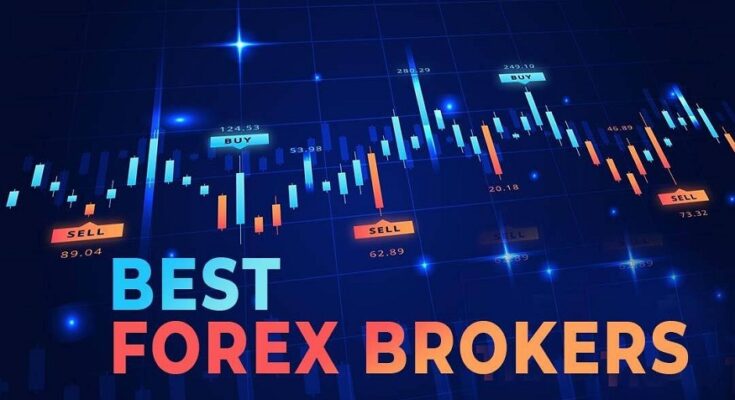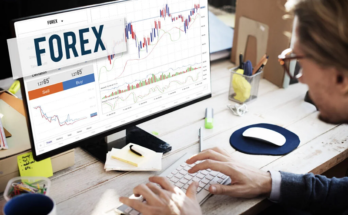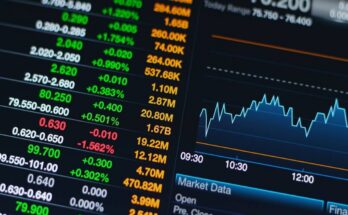As a major financial center in the Middle East, the United Arab Emirates (UAE) has made a name for itself. A growing number of financial services providers have established offices in Dubai as a result of the city’s particular goal of becoming a global hub for conventional banking, investments, and Islamic finance. This comprises multiple licensed brokers who provide customers with the ability to trade futures contracts on international indexes from the United Arab Emirates. Let us examine more closely a few of the main regulated brokers that are active in the nation and that permit online futures trading in dubai on indexes.
Regulation of Brokers
To control financial market intermediaries and safeguard investors, the UAE has established a strong regulatory framework during the last ten years. The Dubai Financial Services Authority (DFSA) and the Securities and Commodities Authority (SCA) are the two main regulatory bodies that keep an eye on the brokerage sector. Depending on the size of their business, brokers must obtain the necessary licenses from one of these regulators before being able to provide client services. Brokers must maintain high standards, which is why regular audits and compliance checks are carried out. For online trading, only brokers with current licenses should be taken into account to prevent any regulatory problems.
Frequently Traded Indices
Regulated brokers give their clients access to trade some of the most actively traded indexes in the world, owing to the United Arab Emirates’ importance as a regional hub. Futures agreements about:
American equity indices: The most liquid futures are those based on the benchmark S&P 500 and Nasdaq 100 indices, which reflect the majority of US equities.
Commodity indexes: Brokers may also provide futures on indexes that reflect the prices of metals, energy, and agricultural commodities such as corn, gold, and crude oil.
Furthermore, certain brokers have collaborated with exchanges to introduce futures on regional stock benchmarks in the Gulf and the Middle East, such as the S&P GCC Composite, to serve local investors. Popular regional and global indices are readily available, meeting the interests of both domestic and foreign traders.
Internet Based Trading Systems
Clients can open and manage positions remotely through advanced proprietary trading platforms or third party software offered by all regulated Indices brokers in UAE that facilitate online futures trading on indices. Among the platforms’ salient characteristics are:
Current market information and quotations for every futures contract that is accessible.
Charting software for tracking market movements and technical analysis
Using margin accounts to leverage trading capabilities; Placing market and limit orders online or through mobile apps;
Automated order types and risk management controls
24 hour, multilingual client service
Depending on each trader’s skill level and risk tolerance, the platforms are made to be incredibly intuitive and configurable. While novice traders can begin with basic order types and charts, professional traders have access to advanced tools. For optimal flexibility, mobile trading is also available.
Minimum Deposits and Types of Accounts
Brokers under regulation distinguish their services according to the kind of customer—individual or institutional—and set varying minimum deposits for opening accounts. Several typical account kinds consist of:
Standard/Basic Account: Individuals must deposit a minimum of $100 to offer fundamental trading functions.
Islamic Account: Free from speculation or interest, Sharia Compliant trading for Muslims. Minimum deposit of $100
Professional Account: Enhanced features, reduced spreads, and additional tools for seasoned traders. Ten thousand dollars is the minimum deposit.
Institutional Account: Designed with minimum deposits in the six figures, specifically for hedge funds and proprietary trading organizations.
Depending on the recent market developments and the preferences of their clients, brokers may provide a variety of account kinds in both fiat and digital currencies. For ease and speed, there are alternatives for both deposits and withdrawals using e wallets and bank wire transfers.
Exchange charges
Although trading futures online offers traders a lot of leverage to increase profits, it also exposes them to fees that, if not managed properly, can reduce total returns. Among the principal expenses imposed by registered brokers are:
Commission Fees: Each futures contract that is purchased or sold is subject to a tiny commission, typically worth a few dollars or less.
Overnight Financing costs: Interestbased costs, which vary depending on the contract and current market rates, are incurred when an open position is held.
Inactivity/Account Maintenance Fees: Should an account become inactive or have less trading volume than required, certain brokers may impose a monthly cost.
If you deposit or withdraw money in a currency other than the base currency of your account, there will be currency conversion fees.
For long term profit maximization, it is advisable to evaluate the fee structures of leading brokers and account for these expenses in any risk management or trade planning process. For high volume traders, some brokers could provide reduced or even commission free plans.
Client Instruction
In addition to support, licensed brokers offer frequent webinars, eBooks, and courses to help traders of all experience levels advance their trading expertise. From fundamental ideas to sophisticated technical analysis techniques are covered. Some even provide trading certifications that are accepted around the world. The goal of this concentration on education is to support clients’ long term success.
Customer Service
Regulated brokers in the UAE place a strong emphasis on offering strong customer service via a variety of channels, given the complexity of trading futures, particularly for beginners. Among them are:
Live Chat: For rapid inquiries, a website offering multilingual live chat support around the clock.
Phone Support: Skilled professionals are available at tollfree lines.
Technical issues, trading, payments, and email support are all handled by separate email addresses.
Online forums: Moderated spaces for exchanging techniques and receiving expert advice.
Educational Resources: Best practices for risk management, trading fundamentals, and videos, webinars.
Trial/Demo Accounts: To get a handson feel for the site without spending real money.
Support and education are acknowledged by top brokers as a critical differentiator. Their goal is to guide traders toward long term potential maximization and to rapidly resolve concerns.
Conclusion
The UAE has been the region’s top choice for online futures trading due to its favorable regulatory environment and extensive liquidity pools across multiple asset classes. Regulated brokers offer sophisticated tools and worldwide exposure to traders of all skill levels. Over time, maximizing earnings from this potent trading tool can be achieved through careful account selection based on needs, low cost tactics, and continuous learning.




